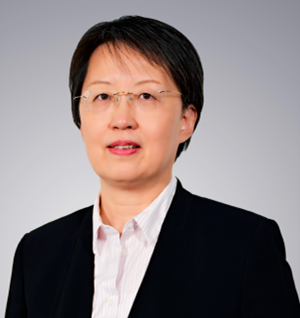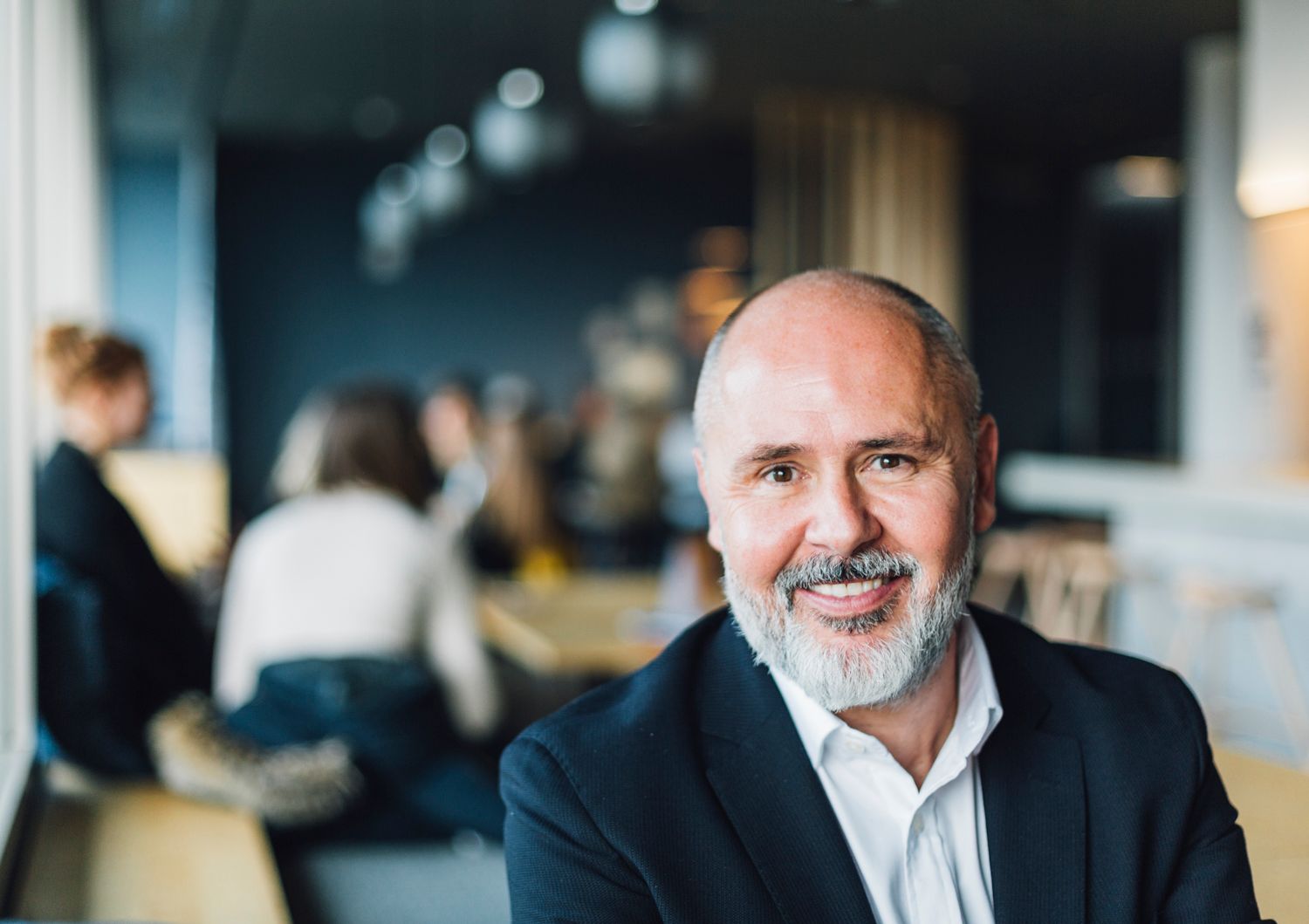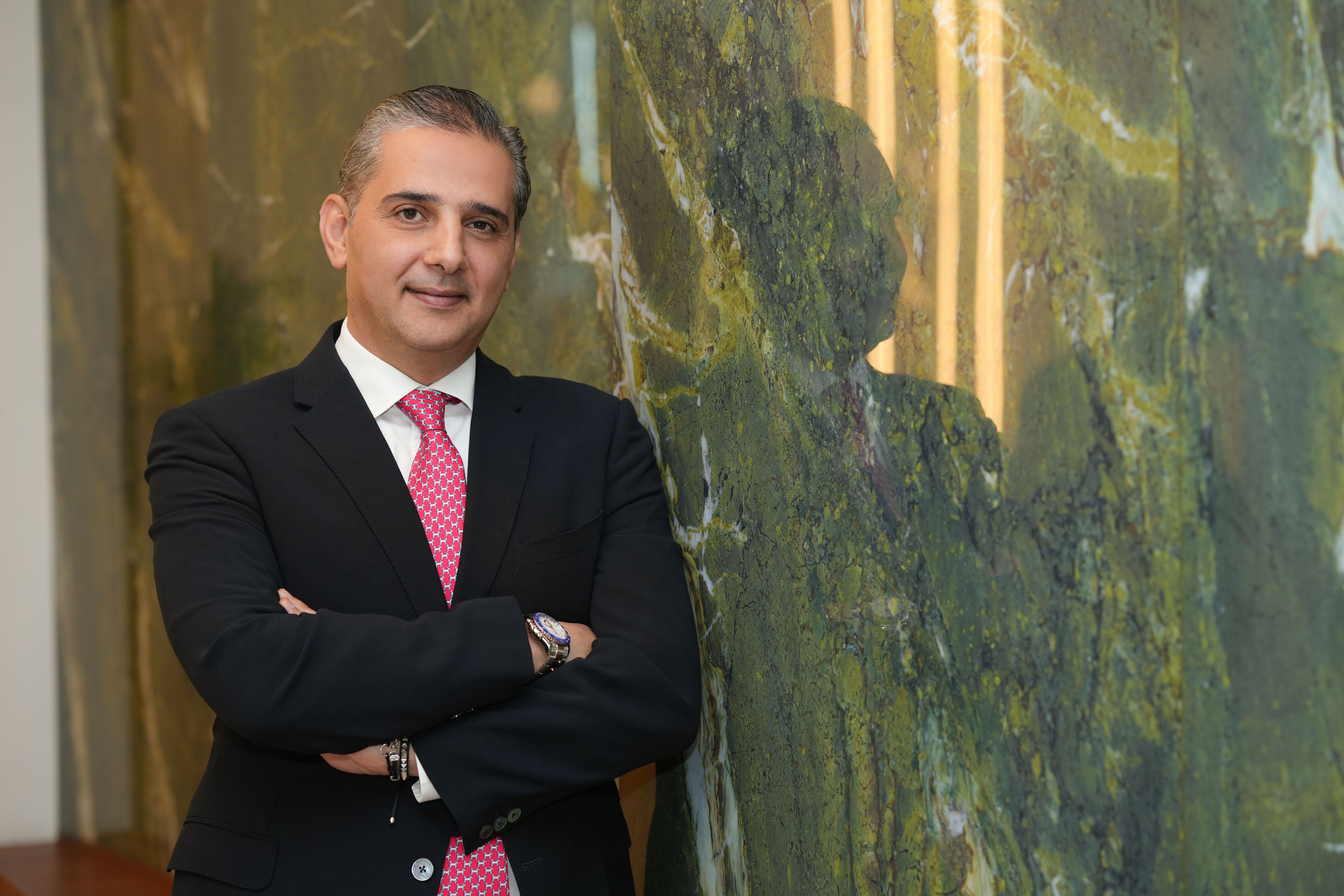Retail Reflections
IAN BAILEY, Managing Director, Kmart Group

As we look ahead to 2025, value will further strengthen in importance to customers globally. The cumulative impact over time of higher interest rates and inflation in some of the wealthier nations has had a profound impact of the capacity to spend for consumers in those markets. In developing markets, the emerging middle class are enjoying their new financial capacity and looking for brands that resonate with them, and also deliver on value. To add to this picture globalisation is in retreat and tariffs are being discussed much more than free trade which will see shifts in manufacturing and costs leading to higher prices. How will retailers respond?
Better Value Brands
In the developed markets this trend is moving at pace with discounters and mid-market retailers looking for quality brands that deliver on price, trend, quality, sustainability and ethics. These brands will empower consumers and enable them to have the items they want and need and still deliver this within restricted consumer budgets. The consumer response will be powerful and the opportunity for brands in this space is significant and exceptional products at exceptional prices will win.
In emerging markets across China, SE Asia and MENA the big brands are already present but there is a substantial gap between them and local retailers. This gap will need to be filled and has the potential to be one of the most dynamic retail territories in the next five years.
Supply Chain Evolution
With a shift in polarity across the world, resilience of supply chains is going to be tested. An increase in the prevalence of tariffs, will mean manufacturing will shift with retailers and brands seeking to minimise the impact of tariffs. This will be inflationary due to the movement from large manufacturing geographies into smaller ones at an accelerated rate which will drive-up costs materially in those markets. At the same time high tariff manufacturing markets will now have idle supply capacity which will spawn new business models to leverage the same. Global retailers and brands will need to become much more sophisticated in managing multiple supply chains geared to serve different markets. Those that do, will be able to deliver superior value to the end consumer and capitalise on this environment.
Equitable Rules On The Playing Field
As retail continues to globalise, we will need to navigate and solve for the growing divide we have witnessed with the rise of large-scale, online direct to consumer retailers in recent years. Governments have already commenced legislative change in some markets and this is likely to become more prevalent in the years ahead to ensure a level playing field for retailers in those markets and ensure consistent adherence to local laws are delivered for end consumers.
The next five years will see more competition, more change and more complexity, however, the opportunity for those who adapt is very exciting.
ALI SHAREIF, CEO, Al Othaim Life

Al Othaim Life’s acquisition of 20 international brands marks a bold leap in the Saudi fashion retail landscape, expanding its brand portfolio to 40 global names and its store network to 450 locations. This strategic move aligns with Saudi Arabia’s flourishing retail market, projected to grow annually by 5.5% to reach $54 billion by 2026. Fueled by Vision 2030 initiatives, rising disposable incomes, and an increasingly style-conscious population, the fashion sector holds immense potential.
However, managing such a vast acquisition comes with challenges. Stabilizing operations, integrating diverse brands, and steering them toward profitability in a competitive, post-COVID market require agility, resilience, and strong leadership. Sociocultural shifts, such as increased demand for inclusive and sustainable fashion, further add complexity.
Al Othaim Life’s success lies in its ability to build a robust team and foster a supportive board that champions quick, informed decisions. Amid evolving consumer behaviors, businesses must remain flexible to adapt swiftly to changes. By focusing on operational excellence and leveraging local and international expertise, combined with continuous digital acceleration, Al Othaim Life is poised to not only weather initial hurdles but also set a benchmark for sustainable growth, contributing to Saudi Arabia’s emergence as a global fashion hub.
YING XU, President, Wumart Group

With the economic situation so challenging and unstable, retailers are striving harder than ever to achieve operational efficiency while simultaneously maintaining customer satisfaction.
We make extra efforts to understand customers' needs, not only in broad or general terms, but with greater precision in identifying the assortments and even specific products that could best satisfy customers of different demographics. With these valuable findings, we need to go further to identify the right channels and communicate with customers in a speedy and entertaining way.
Retailing is no longer just about delivering good products at a reasonable price, but it is enriched with a deep understanding of customers, making them feel that they are well taken care of. To make this happen, we are required to be more tech-savvy, enhance our ability to leverage data and AI, and equally important, we always need to strive for excellence from the basics of retail.
JENNIFER FOYLE, President and Executive Creative Director, AE & Aerie

This past year was certainly an interesting time for retail — and one to learn from. In 2024, we faced persistent inflation, global conflicts, supply chain disruptions and a divisive U.S. election cycle–and that only scratches the surface of the distractions consumers and retailers faced. Against this backdrop we experienced more peaks and valleys in demand, and consumers were selective and wanted value more than ever. Yet importantly, our customers have remained resilient and overall spending was up, especially during peak selling periods.
At American Eagle Outfitters (AEO) our customers strongly embraced exciting new fashion trends and silhouettes in 2024, loyally shopping our portfolio of loved brands. Fabric innovation with a focus on comfort and softness has been an important area of focus for us. In addition to powerful trends in our signature jeans business we’ve seen incredible growth in soft dressing and in athleleisure–a newer and expanding category for us.
As I write this, we are at the height of the holiday shopping season — a favorite time of year for retail leaders. While we are pleased with the customer’s response during this busy shopping season, we are planning into 2025. There will no doubt be some challenges in the year ahead that we will need to navigate–including the possibility of tariffs and ongoing global complexities. A new year also brings possibilities. The curiosity and innovation that is fueling technology advancements across all aspects of our industry from fabrication to customer experience to sustainability will most definitely continue to transform the retail industry.
I am incredibly grateful for the amazing company, brands and brilliant talent I get to work with everyday. And, as an industry, I am inspired by retail's ability to adapt, innovate, and shape a brighter, more connected future.
FREDERICO TRAJANO, CEO, Magalu

The year 2024 was decisive for Magalu. Last year, we recognized the need to build an operation less sensitive to high interest rates and Brazil's recurring macroeconomic cycles. We shifted from a pandemic scenario with negative interest rates to one with 7% real rates a year later, and today we face 11.25%, with an uncertain future.
Despite macroeconomic challenges, we have succeeded in consolidating a digital ecosystem of companies that operate in synergy, significantly expanding Magalu's reach. In Q1 2024, we returned to profitability, even though projections suggested a drop in interest rates throughout the year. We remained focused and pragmatic in our strategy.
Given Brazil's fiscal uncertainties, interest rates started rising again, marking a pivotal moment for Magalu. Even with this reversal, we remained on course for profitability and will close 2024 with positive results in all quarters.
What lies ahead? Probably, more disruption. And we are excited about it. I have been in e-commerce for 24 years, and in that time, I have seen only three technologies that radically transformed businesses. The first was the advent of the internet in 2000. In 2010, the rise of smartphones and mobility led to companies like Uber and food delivery services. Now, I see the same transformation with AI, and we are preparing to take full advantage of this new cycle.
SERGIO BUCHER, Member of the Executive Board, Retail and Brands, Otto Group

What makes a year like 2024, marked by subdued demand and heightened consumer discernment, so valuable for the Otto Group? The answer lies in how we transformed these challenges into opportunities, strengthening our processes and driving customer-focused innovations.
We used this time where growth doesn't come easy to focus on performance, innovation, and responsibility. We have invested in improving our back-end, both logistics and technology. AI has made its first steps in numerous projects, with a special focus on sustainability, efficiency and customer experience. Highlights include loyalty initiatives like Crate & Barrel’s Design Desk, which offers a tailored, customer-centric shopping experience, helping our customers design a better home. Otto Group companies with a deep integration between online and stores, such as Manufactum, delivered the best performance. This integration has become a meaningful driver of customer satisfaction and loyalty.
With 2025 bringing challenging geopolitical factors that add complexity to our already demanding agenda, we anticipate a year where uncertainty will bring stress to our supply chains and drive significant change. We are still planning in a conservative way, with little or no demand increases and keeping inventories under control.
FAHED GHANIM, CEO, Majid Al Futtaim Lifestyle

Retail volume growth in the Gulf countries is surging, driven by a young, digitally savvy population, increased incomes and swift growth in cities. The region is ripe with opportunities for bold, forward-thinking strategies aimed at sustained growth. Saudi Arabia, the Gulf’s largest economy, is undergoing a retail renaissance as it strengthens its non-oil economy – jumping nine positions from 12th to 3rd place on the Kearney 2024 Global Retail Development Index. Majid Al Futtaim Lifestyle is leveraging the Kingdom’s growth story, with strategic expansions of its in-store and online channels.
Luxury continues to grow in our markets. Bucking global trends, we strengthened our homeware portfolio, launching Jeddah’s first CB2 and Crate & Barrel stores and a new Poltrona Frau store in Dubai’s Mall of the Emirates. We expanded our fashion brand portfolio, welcoming Eleventy and Cornelliani, as well as launching Psycho Bunny in the region.
Digitalisation has boosted omnichannel integration, seamlessly blending online and offline retail experiences for a consistent, cohesive customer journey encompassing in-store, online, and mobile channels. In fact, online sales contributed more than 20% of the revenue for some of our omnichannel brands.
Consistently innovating and transforming the customer experience is a priority. As AI adoption grows in the private sector, we are leveraging AI and data to better engage and serve our customers.
Looking ahead, Majid Al Futtaim has an ambitious development pipeline for its Lifestyle business, focused on strategic growth and regional expansion across Fashion, Home, Beauty, Specialty Retail and our multi-brand concept, THAT.
Looking to 2025
-
Increased investment in integrated digital and analytics capabilities to deliver personalized customer experiences. We are leveraging AI to unify customer data across all touchpoints, and using this to streamline operations, optimize inventories, and boost engagement.
-
Community engagement and social commerce continue to play a vital role. Retailers will focus on building thriving communities offering immersive, engaging customer experience and great moments for shoppers.
-
Saudi Arabia continues to be at the forefront of regional retail growth. Luxury retail brands will continue expanding their presence in key cities like Riyadh and Jeddah. This growth aligns with the Kingdom’s Vision 2030 goals, driving regional expansion through innovative store concepts and partnerships tailored to the Gulf market.
IGNACIO SIERRA, Corporate General Manager, Tendam

In a recent report on the economic forecasts for our sector in Spain produced by The Textile and Fashion Observatory, the figures painted a bittersweet picture. On the one hand, it showed showing a strong recovery in sales in double digits at close to 29% in the two years following the pandemic. But in terms of the number of companies, the decrease reaches 11%.
Fortunately, employment grew in the sector by 1.2% and is getting closer to pre-pandemic levels.
Exports grew to continental Europe, but the US and UK markets dropped.
All these figures confirm what, at the company level, we expected to happen and what drove us to implement our very successful growth strategy launching 5 new own brands and the platform of now 170 third party brands. The sector should recover but it will be by taking market share from the many players suffering from the crisis.
Juan Parés, Chairman of the Observatory said in the presentation, we have left behind the “era of crisis” to enter the “era of chaos”. While the sentence is clever, we need to understand what this “chaos” really means.
During the 90s boom which lasted until 2007, we forgot all the major changes in trade rules, tariffs, safeguards and sourcing shifts that impacted our sector before then. But geopolitics and environmental pressures have brought all these pressures back. Yes, we have a huge social impact and of course a high environmental one given the enormous responsibilities every single day to millions of workers and customers. We did right in developing our response to these demands and will keep doing the right thing in the future. Proof of that can be seen in the success of the voluntary steps that we have made that are now being set out by government regulations affecting all companies.
I do envisage a move in Europe from the green deal that has worked well to a harsher reality of greater competitiveness. To combat this, we need to see a revision of global trade rules and agreements that guarantee a level playing field for all across borders.

